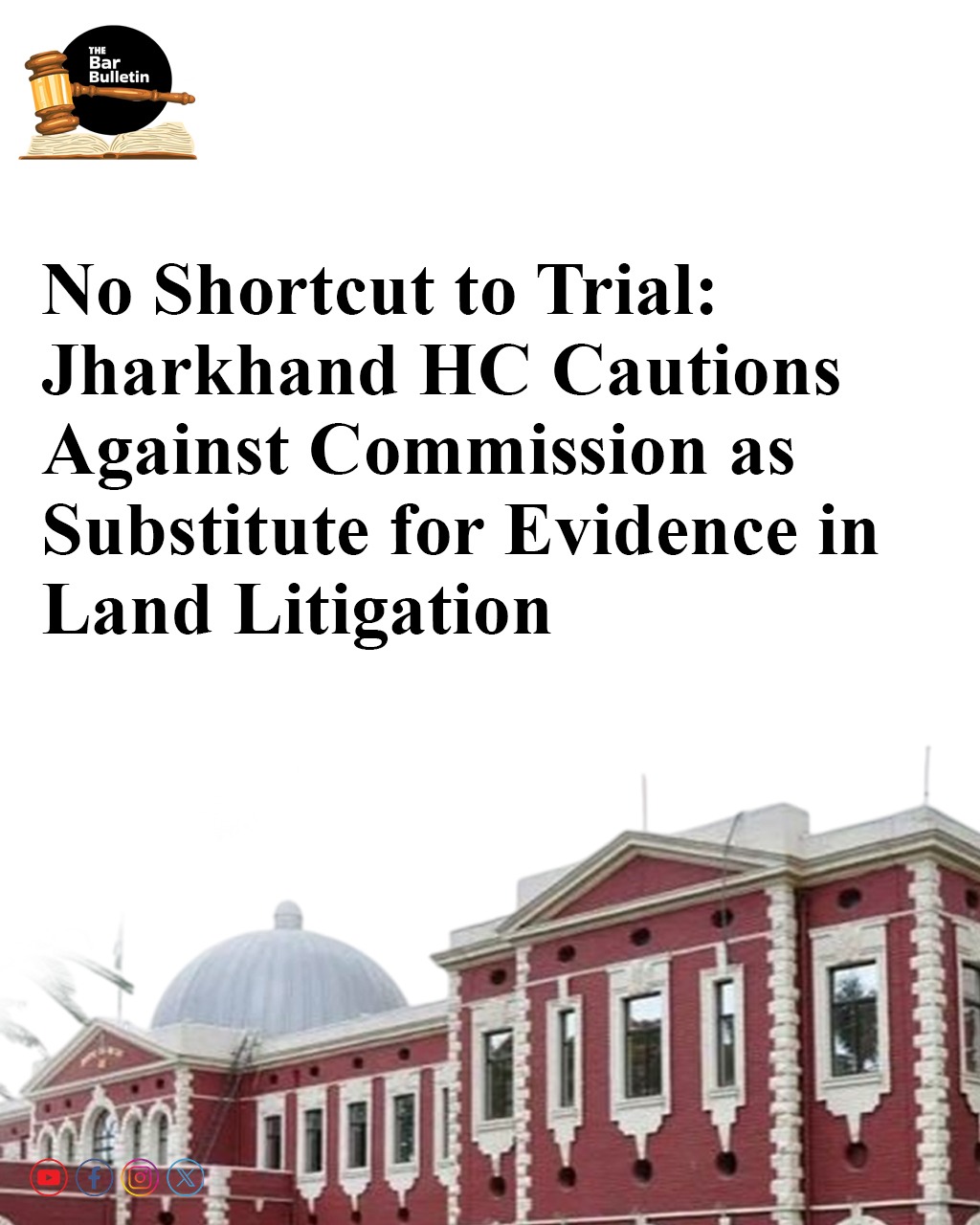The Jharkhand High Court allowed a petition filed under Article 227 of the Constitution of India, setting aside the order of the Sub-Judge-III, Bokaro that permitted the appointment of a Survey Knowing Pleader Commissioner to conduct a local investigation into the disputed land. The decision reiterates that the commission process should not substitute for the parties’ responsibility to lead evidence during trial, and that such appointments are not appropriate at the initial stages before framing of issues and examination of witnesses.
The Original Suit was instituted by the plaintiffs/opposing parties seeking a declaration of valid title, right, interest, and possession over a piece of land in Bandhgora, and a permanent injunction restraining the defendants from interference or obstruction. After initial proceedings, which included an unpressed application for injunction, the plaintiffs sought the appointment of a local commissioner under Order XXVI Rule 9 CPC to investigate and report on the suit property’s boundaries, constructions, and present state.
On the other hand, the petitioner argued that this amounted to gathering evidence at a premature stage, sidestepping the need for parties to themselves establish their respective claims through proper trial process. The trial court, after hearing both sides, granted the plaintiffs’ request.
The High Court Bench comprising Justice Sanjay Kumar Dwivedi observed that appointing a local commissioner to collect evidence in this manner, before the framing of issues or commencement of trial, ran counter to the spirit of Order XXVI Rule 9 CPC and established precedent in Praga Tools Corpn. Ltd. vs Mahboobunnissa Begum[1]. The evidentiary value of any commissioner’s report, the Court noted, must be tested in open court, and cannot replace the burden on parties to lead evidence.
The Court found that the trial court’s points for inquiry would in effect amount to pre-trial evidence collection rather than clarifying matters arising out of existing evidence. As neither party had yet led evidence nor had issues been framed, the order was considered premature and unsustainable.
Accordingly, the Jharkhand High Court set aside the impugned order dated 14 May 2024, allowed the petition, and reminded subordinate courts that the procedure of appointing a local commissioner is an aid to understanding evidence already led, not a means to create a substitute for it at the early stage of proceedings.
[1] (2001) 6 SCC 238
Appearances:
For the Petitioner: Mr. Kushal Kumar, Advocate.
For the O.P. Nos. 1 to 3: Mr. Mukesh Kumar, Advocate.
![]()



